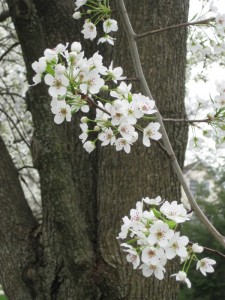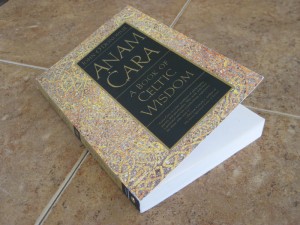One of the things I love about John O’Donohue’s Anam Ċara is its deeply rooted optimism. It does not deny the darkness in life, yet conveys unwavering trust in life’s goodness. His assurance of life’s faithfulness is itself a wonderful definition of faith:
“Creative expectation brings you healing and renewal. If you could trust your soul, you would receive every blessing you require. Life itself is the great sacrament through which we are wounded and healed. If we live everything, life will be faithful to us.”
This is a powerful statement, one that I’m drawn to and also challenged by. I’m not sure that I want to live everything. There are plenty of difficult, painful, and trying things that I’d like very much to avoid. Yet when those things arrive in spite of every effort to turn them away, there is no choice but to live them. And when that happens, I’d like to believe that walking through a dark valley eventually leads toward healing and wholeness.
How do we learn to trust life, knowing its power to wound? How do we overcome the fear that we won’t be safe, loved, or cared for if we aren’t good enough? How do we cultivate creative expectation when we’re weary and disappointed?
O’Donohue points toward the inherent strength of the soul. He knows there is a place within us that is eternal, where we can go “to be nourished, strengthened, and renewed.” He offers the assurance that “The deepest things that you need are not elsewhere. They are here and now in that circle of your own soul.” The presence of God is within us always.
That presence is manifest in a chorus that echoes throughout scripture: “Do not be afraid.” It is spoken to ancient ancestors and through the words of the prophets. It is the message of angels to Mary and Joseph, to the shepherds who visited the Christ-child, and to the father of John the Baptist. Jesus says to his followers, “Do not let your hearts be troubled, and do not be afraid.” Holy reassurance seems a universal stepping stone toward a life of genuine faith, one that trusts in the work of God.
Faith understands that the power of God permeates all of life, making growth, healing, and renewal part of the experience of being alive. Faith trusts that God is faithful. Faith frees us from being trapped in our circumstances. Faith rests in the assurance that God is always at work in the world and in us, and invites us to live into a greater vision of all that life can be.


